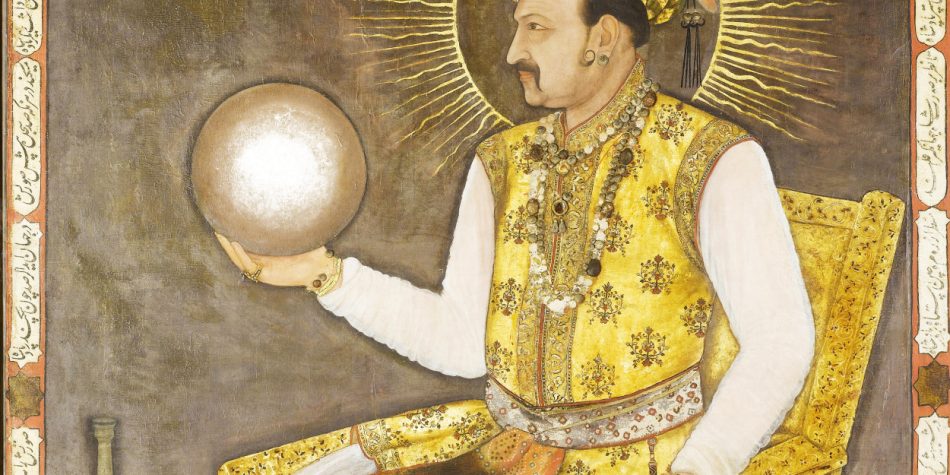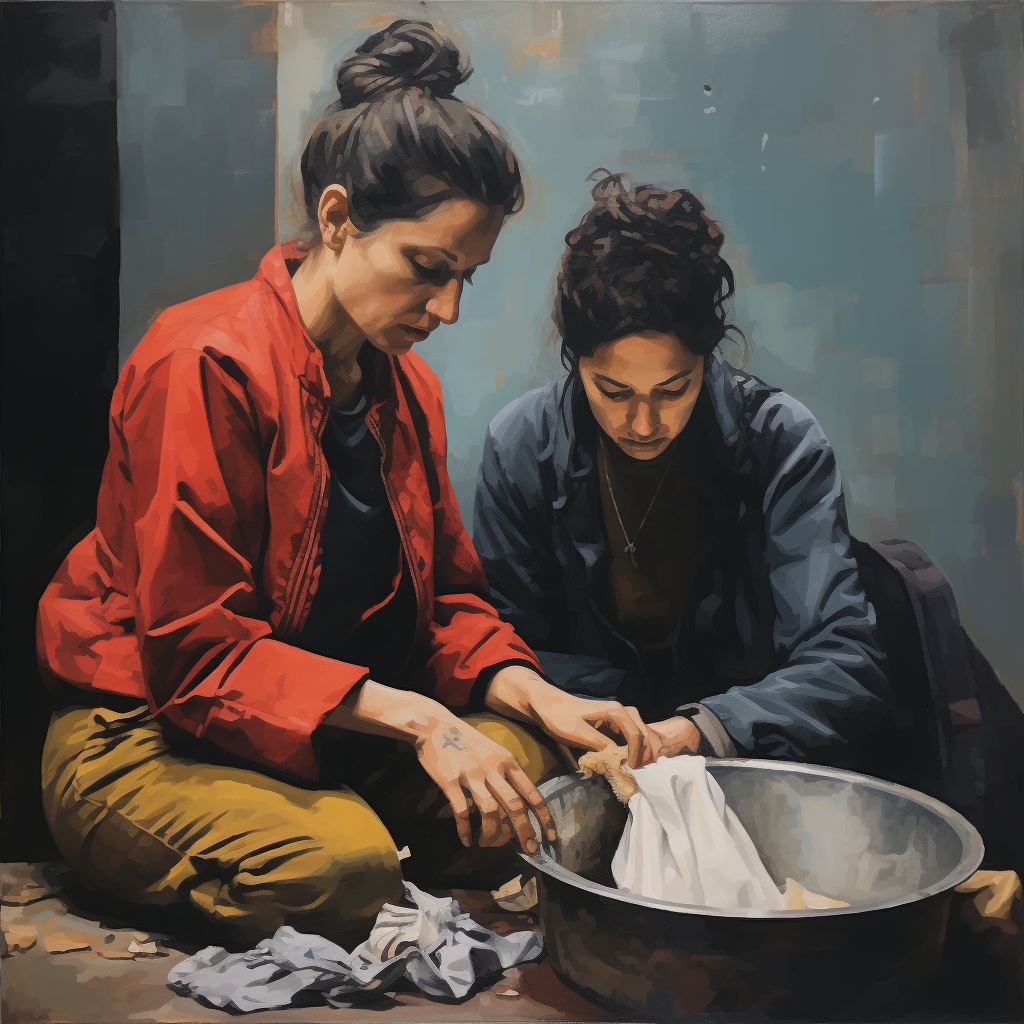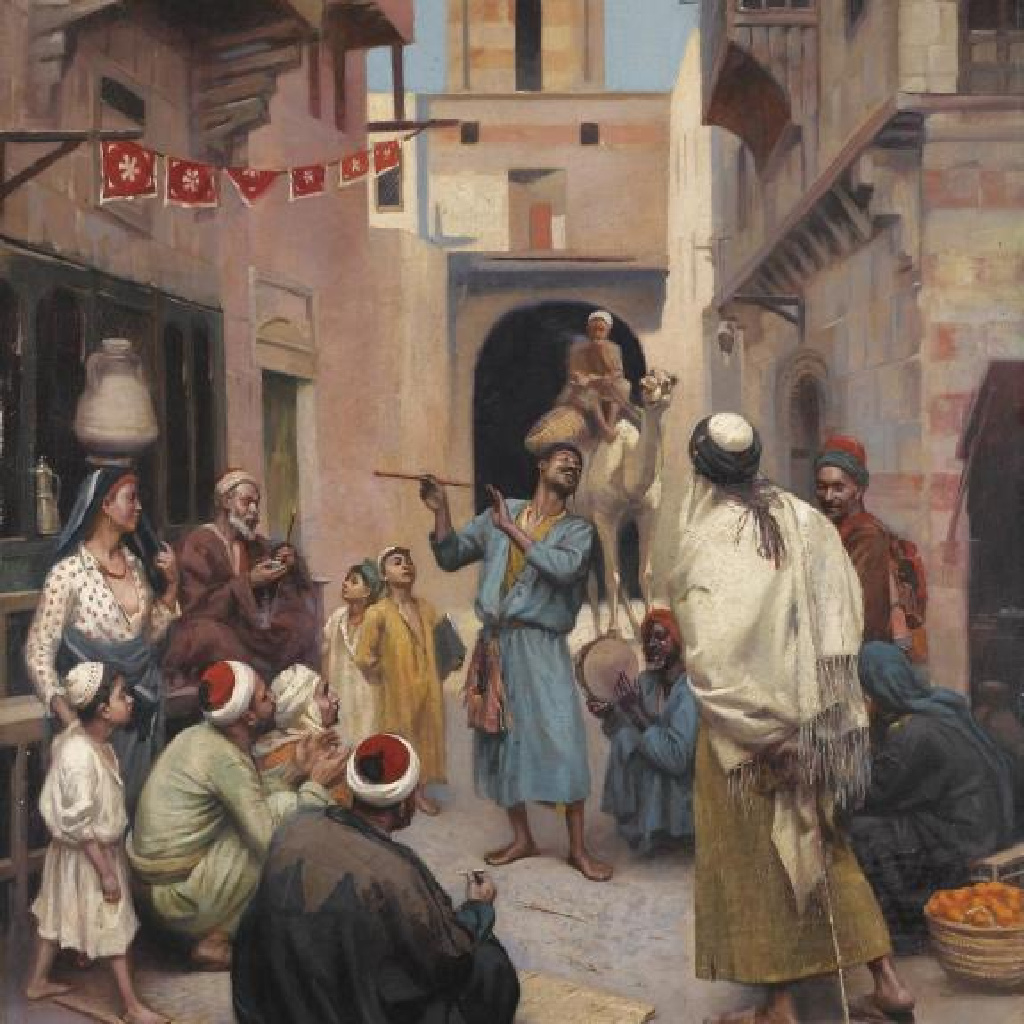You’re Prince Salim, the eldest surviving son of the third Mughal emperor of India, and you’re thinking of becoming his only surviving son. The one obstacle is that you’ve somehow developed a conscience.
Dad wouldn’t mind—even if he found out, which he might easily not. Your two brothers aren’t far from drinking themselves to death as it is. If they happened to succumb slowly over the next year, no one would need to wonder what was in all those wineglasses.
And if they did wonder, again, no one would be too outraged. “Mughal” means Mongol, after all. You’re descended from freaking Genghis Khan; making mounds of human skulls—literal mounds, literal skulls—is an old family pastime. Another family tradition is wars of succession, which start when a ruler dies and often end with his victorious brother or son or nephew executing the others, or maybe just gouging out their eyes and exiling them. Do you want that to happen to you? If it became known that you’d skipped the coin toss and kicked the game off early, you’d probably be more praised for your foresight than condemned for your treachery.
But… murder?
…
Look, don’t be squeamish. It’s nothing personal. Yes, they’re your brothers from other mothers, but their mothers have families, and the families have armies. In an empire as big and bumptious as India, a succession war might last decades, and even a short one would kill tens of thousands of people. The empire might fracture. Really you have to murder your brothers. It would be morally irresponsible not to.
Your soul? All right, let’s talk about souls. You’re a serious Sunni Muslim, I know. Have you noticed Dad isn’t?
Yes, a snort was the correct response to that question. When he was cementing his power, your father Akbar proudly gave himself Muslim titles. He built a grand hall for debates among Sunni scholars and attended the debates himself. And then he had his famous (faked?) mental breakdown on a hunting trip, and the next thing you know he’s worshipping the sun like his Hindu wives—and presenting himself daily on the balcony for people to look up and worship him.
You frequently hear, in our overwrought age, that people will die unless one faction or another gets its way.
Then his closest ministers started renouncing Islam and wearing icons of his face, and by the time he minted coins reading “Allahu Akbar,” you knew enough to wonder: Did Daddy Akbar really mean “God is great”? Or was it “Akbar is God”?
Soon enough Daddy Akbar’s going to die. Will the next emperor undo the damage he did? Will he stop the idolatry and protect Islam from the apostates?
Not if one of your brothers takes the throne.
So ask yourself: does God want you to save Islam, save India, and save your own life? Of course He does. Get to it.
————
You frequently hear, in our overwrought age, that people will die unless one faction or another gets its way. A conservative was nominated to the Supreme Court? “People will die!” Liberals want to release prisoners from Guantanamo? “People will die!” Gun control laws are changed, in either direction? “People will die!”
But if I roll my eyes at the shrieking partisans, it’s not because they’re wrong. Of course people will die. The partisans’ error is their fantasy that if they get their way people won’t die. In a country the size of the United States, government is a game where every move kills. You can reopen the economy and kill people with a virus or keep it closed and kill them with domestic violence, unemployment, and despair. You can invade Iraq and kill people, or you can stay out and let Saddam Hussein kill people. You might think one option or the other will lead to fewer deaths, and you might even be right, but there are no control groups in these experiments. You’ll never know for sure what would have happened if you’d acted differently.
And every death you cause will matter: every grandmother whisked away on a gurney to spend her last days intubated and alone; every young father in a flag-draped casket; every school shooter shot by police, and every one of his victims.
It’s a terrifying responsibility. Why on earth do people seek it out?
There are as many answers as there are power-seekers, I suppose. Particularly common today are the ideologues, innocent of self-doubt, ready always to give an answer to every man that asketh why putting them in charge will save the world. These ones don’t fear the awful responsibility because they don’t see it; the ideology tells them the right thing to do, and if they do it, then by definition they get the right outcome. If people die, the ideologue probably won’t even notice because those aren’t the deaths his ideology tells him to notice. If he does notice, the ideology tells him what the deaths mean: they were tragic but unavoidable; or they were someone else’s fault; or the people who died “brought this on themselves.” One way or another, the deaths don’t count, and the ideologue’s conscience is always clear.
The same drug in a smaller dose is Washington’s local currency, and easily the bulk of a lot of people’s paychecks.
I wonder, though, whether we’d have so many ideologues if we hadn’t made so many of them rich—I wonder how many pundits and politicians and “public servants,” whether they know it or not, have decided to seek power regardless of the consequences simply because of what’s in it for them. Power pays: did you know the Clintons have made a quarter of a billion dollars since Mr. Clinton left office? Power has perks: if they want to, presidents get early screenings of big movies, early copies of big novels, command performances by great musicians—not to mention those long motorcades that snarl D.C.’s already awful traffic to get you places where the helicopter can’t land. Every minute of every day tells you that you matter, that you’re above the masses, that the whole world revolves around you. What are a few deaths next to a drug like that?
You don’t even have to be president. The same drug in a smaller dose is Washington’s local currency, and easily the bulk of a lot of people’s paychecks.
And then there are the respectable motives, and even noble ones. There are countless people who fall into a government career and just want to do a good job at work; people humbly doing good who put themselves in positions where they can do it; and people who “seek not for power but to pull it down.” Yet if “people will die!” when the other side wins, then what should you not be willing to do to stop them? Which of your principles can’t you justify abandoning, just until the crisis passes? And if you happened to reward yourself handsomely along the way—purely incidentally, you understand—who could doubt you deserved it?
Which brings us back to…
Prince Salim’s brothers Murad and Daniyyal probably did drink themselves to death, without Salim’s help. (Protip: When your father forbids you from drinking, and your friends and servants hide wine about their persons and smuggle it to you, consider politely declining the stuff they’ve poured into the barrel of a rusty rifle.) It’s true there were rumors Salim had poisoned his brothers, but my story above is fictionalized.
The reality is worse.
Salim was no barbarian. He was the eldest son of the absolute ruler of the richest country on earth, where European visitors were routinely awestruck by the sheer opulence of everything and wrote whiny letters home about the lousy gifts they were supposed to use to impress the locals. His tutors were the heirs of thousands of years of science, mathematics, philosophy, history, theology, literature, and poetry from India, from Persia, and through Persia from Islamic civilization, Byzantium, and classical Greece. His political science teacher—his father—was one of the most successful statesmen of any era, an advocate of religious freedom centuries ahead of his time, and Salim himself was declared a model ruler by no less a thinker than Francis Bacon. He was, not to put too fine a point on it, more cultured and educated than most people who govern our enlightened society today.
Yet for all the culture and education, for all the hours spent with holy men of many religions and all the deep riches of Indian and western thought, Salim did not “somehow develop a conscience,” or at least not the sort of conscience that made him hesitate to kill people. He once killed a servant for interrupting a hunt to give him some wine; another he ordered skinned alive for trying to run away with a lover. He may even have tried to kill his father once. As Akbar lay in agony accusing Salim and the doctor of poisoning him, Salim sent men surreptitiously to watch his brother and be ready; only Akbar’s recovery saved the brother from the knife. Later, after Salim led a halfhearted rebellion against Akbar, he realized he would never return to favor so long as his enemy Abu’l Fazl remained his father’s closest friend. He arranged for an ally to ambush and murder the man.
On its own terms it was all a success. Salim survived his father’s wrath, defeated his rivals, and spent the last twenty-two years of his life as Nuruddin Muhammad Jahangir, the “World Seizer,” Padishah of Hindustan and supreme ruler of a hundred twenty million people. At last he had the power to do what he wished.
Which turned out to be… not very much, actually. He finished conquering some kingdoms his father had invaded, did alms, heard petitions—the normal business of a Mughal ruler. He’d pitched himself to his father’s critics as the faithful Muslim candidate, but he happily handed out icons like his father had, made the same appearances on the balcony, required the same ritual prostrations, had himself painted as an avatar of Vishnu, and so on. Mostly, it seems, he enjoyed himself: his travels about the realm, taking notes on its natural beauties; his lavish lakeside parties; his harem; his romance with his favorite wife Nur Jahan; his exotic fruits; his daily wine and opium.
But I have to wonder how he felt when his firstborn son Khusrau raised an army against him only months after Akbar died; or when, a year later, he learned Khusrau was conspiring to murder him and had the rebellious boy blinded with a red-hot wire. I wonder how he felt as his life drew to a close and another son rebelled; as his family schemed to succeed him; as his third son murdered the first and possibly the second. I wonder whether he anticipated that, when he died, the bloodthirsty third son would finish the job and kill the fourth son, two grandsons, and a pair of nephews.
I wonder whether he asked himself, might there not be some better way? Some other sort of government, with a different way to transfer power, so that one reign could follow another without son rising against father or brother killing brother, without every greedy noble from Kabul to Orissa whispering flattery and fratricide in every royal descendant’s ear?
Or might there be, perhaps, some other way of life entirely—might it be that seizing and keeping and wielding power don’t actually matter in the end? In all the times Salim heard the muezzin’s call to prayer, was he ever once moved to perform his own prostrations before a king whose reign preceded his and would outlast it, whose justice he himself would someday face? When he teased Jesuits with the thought of his conversion, was it because he half-saw the majesty of a crown of thorns, and half-felt the shame his rubies deserved in comparison? Or were his religious talks just one more amusement; one more reminder that, while he lived, he was the indispensable man whose favor apparently even God was seeking? Perhaps the talks were a comfort to whatever conscience he had, as the divines’ teachings contradicted each other and suggested no one actually knows what comes after death, and Salim need not trouble himself about it.
I do not know, nor do I know how history might have changed if Salim had loved justice more than rule, and chosen to abdicate or die rather than commit the crimes his ambition demanded. But I am not the first to suspect (as one scholar put it) that if Salim had been the head of a natural history museum instead of an empire, he’d have been a better and a happier man. And I am not the first to notice that, as the Mughal Empire aged, Salim’s descendants increasingly followed his third son’s example until the Mughal rulers were so busy murdering each other that they could no longer rule, and the next Emperor of India would be crowned in London.
In this world all things end, and the Mughals would have ended eventually no matter what Salim did; if Salim had chosen to let Murad or Daniyyal or Khusrau succeed Akbar, we might have been denied the Taj Mahal and other high culture of Salim’s descendants—we might be stuck calling our business leaders “tycoons,” having never learned the word “mogul”—but otherwise I doubt, four centuries later, that we would notice the difference.
Salim, though. Salim’s soul still lives; like every soul it will still live when India is a memory; and Salim would notice.
Bibliography
I relied chiefly on Parvati Sharma’s Jahangir: An Intimate Portrait of a Great Mughal (Juggernaut 2018), and to a lesser extent on The Memoirs of Jahangir, translated by Alexander Rogers and edited by Henry Beveridge, available as an e-book from Amazon. I am also indebted to a pair of Teaching Company courses by Michael H. Fisher and Kenneth W. Harl, to Wikipedia, and to a pair of friends who know a lot more about India than I do and graciously gave me their thoughts. My essay’s moral inspiration comes from Elder Neal A. Maxwell, who reminded Latter-day Saints as the Iraq War began to “Care for the Life of the Soul.”










